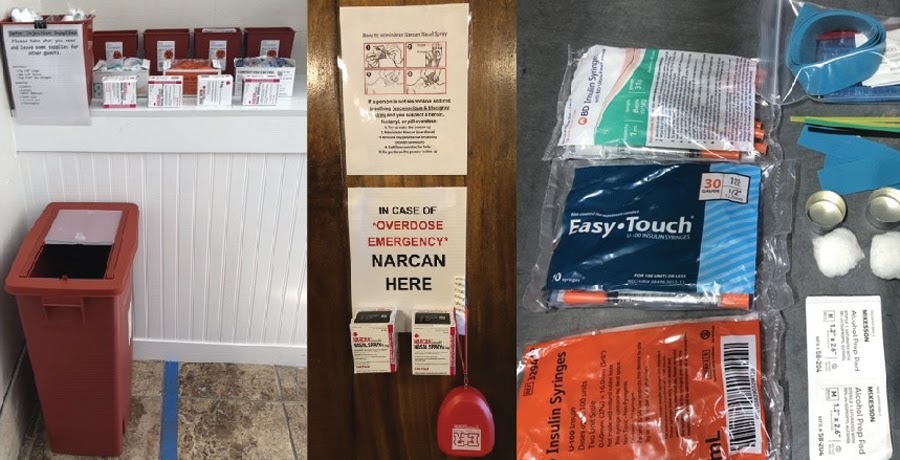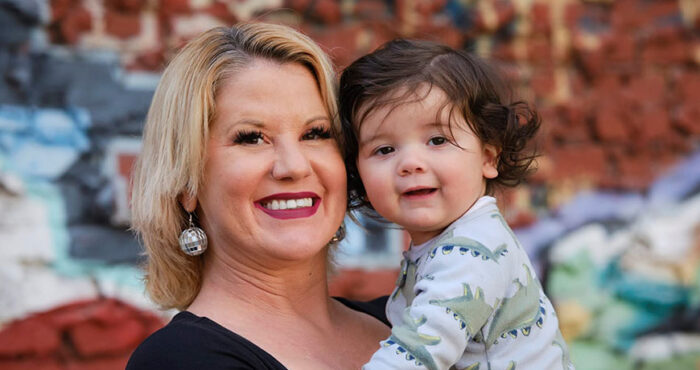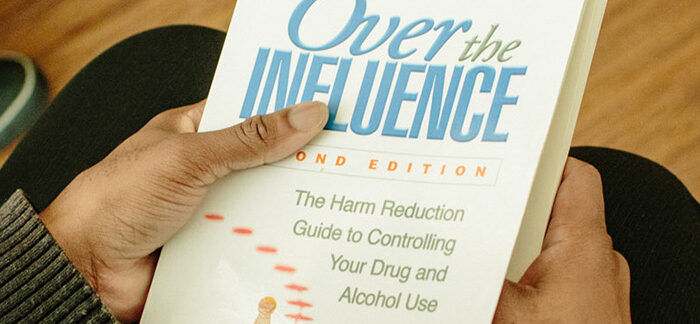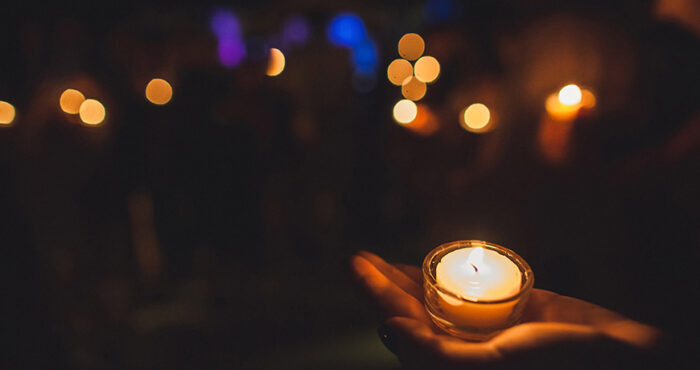Harm reduction “stations” prevent overdose in hotels during COVID-19

Since the beginning of the COVID-19 pandemic, about 2,000 unhoused San Franciscans have been granted hotel rooms as a health and safety measure to mitigate the spread of COVID-19 during shelter-in-place. But for individuals who use drugs, sheltering alone comes with a new concern: the heightened risk of potentially fatal overdose.
“Unhoused people have mainly been housed in rooms by themselves,” said Rob Hoffman, director of syringe access and disposal operations. “This places people who are at an increased risk of overdose now at an increased risk for fatal overdose, if they’re using alone and don’t have anyone nearby ready to respond with Narcan.”
In response to this concern, our Syringe Access Services staff have mobilized alongside the San Francisco Department of Public Health and other community organizations to provide safer consumption, overdose prevention supplies, and overdose prevention information to the thousands of newly-housed residents in more than 30 hotels across the city. Staff have also organized virtual trainings to educate staff at hotels and shelters about overdose prevention and harm reduction strategies to keep residents safe.
“The people we normally serve at our Harm Reduction Center and our mobile syringe and health access sites are the people we’re serving in these hotels,” said Hoffman. “These are our participants, and we want to make sure they have access to the supplies they need during shelter-in-place.”
In common areas–such as near elevators–self-serve overdose response “stations” provide the overdose prevention medication Narcan, along with instructions on how to reverse an overdose with Narcan. Sharps containers for safe syringe disposal, safe injection kits, safer smoking kits, and fentanyl test strips are also made available at harm reduction supply stations. Supplies are provided safely, legally, and under the guidance of San Francisco Department of Health protocols.
Although it’s difficult to measure exactly how many overdoses may have been reversed so far due to the self-serve nature of the stations, Hoffman is confident that the supplies are getting to people who need them and are being used. At least 1,000 doses of Narcan have been distributed since the beginning of the program in April, and supplies at all of the participating hotels are restocked regularly.
“This project establishes a model for single room occupancy (SRO) hotels and shelters to provide harm reduction stations in the future, even after COVID-19 is no longer a threat,” said Whit Bastian, manager of the Harm Reduction Center. “There are plenty of people who have limited mobility who may not be able to travel all over the city to pick up clean supplies. So it’s been great to see that these stations are manageable and effective–so that we can build a case for their use in the future.”
—
Overdose awareness and prevention
On average, 130 people in the U.S. die every day from an opioid overdose–and more than 70,000 per year from overdoses of all drugs.
In commemoration of International Overdose Awareness Day held on August 31, we’re sharing information, news and resources about overdose and overdose prevention throughout the month of August. Find out more by signing up for our emails or following us on social media.
Overdose prevention supplies
Visit the 6th Street Harm Reduction Center, 117 6th Street (at Mission) in San Francisco, for services and supplies that help you manage your health, prevent overdose, and prevent HIV and hepatitis C transmission. We are open Monday – Friday, 11 am – 4 pm and Saturday from 4 pm – 8 pm during the COVID-19 pandemic.









